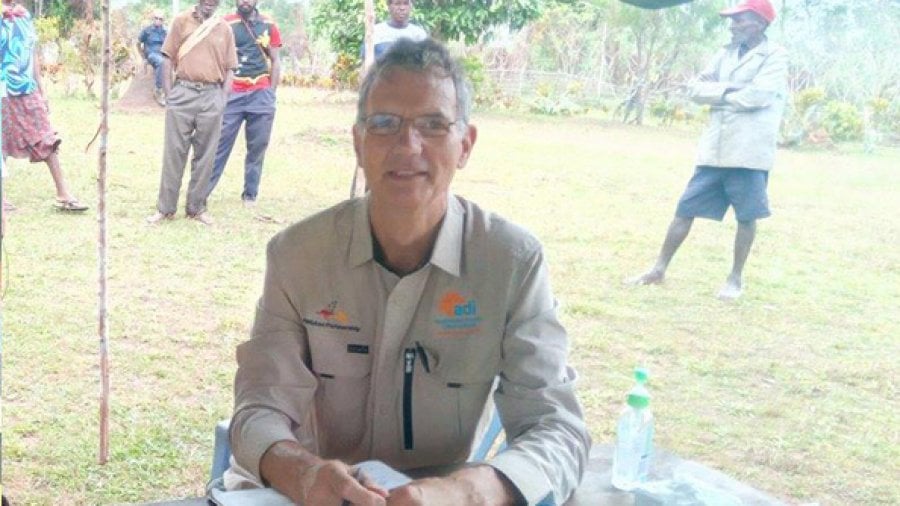Studying the Diploma in Tropical Nursing - Nicolas' story
11 May 2020 London School of Hygiene & Tropical Medicine London School of Hygiene & Tropical Medicine https://lshtm.ac.uk/themes/custom/lshtm/images/lshtm-logo-black.png
My nursing career has taken me all over the world: I migrated to Perth in Western Australia after gaining my State Registered Nursing qualification in Exeter (UK) and completing intensive care studies at Southampton General Hospital. I then took on positions as a clinical nurse in cardiothoracic care, paediatric intensive care and in general practice while studying part-time for a health science degree, and worked in teaching, project officer roles and health IT where I was fortunate to travel to hospitals in Australia, South-East Asia and the USA. I subsequently returned to full-time nursing, eventually becoming the nurse manager.
"The course has been fundamental in my career because it gave me the foundations of knowledge, skills, awareness and context needed for overseas health work"
I have always had a keen desire to help people, and promised myself that one day I would work in places and countries that did not have access to the health systems we enjoy here in the UK. I had also developed an interest in infectious diseases from my exposure to immunisation campaigns and volunteer work in Cambodia. My family were growing up, and I felt it was time to give back to those less fortunate. I researched courses that would prepare me to work in these kinds of environments. The PDTN at LSHTM is one of the only courses in the world that offers the mix of lectures, practical application and laboratory skills with a focus on working in remote areas. Studying this programme was a memorable and uplifting experience - one that I will always treasure.
A typical PDTN day would start with a pre-course morning coffee in the LSHTM café and a chance to catch up with other students. Our morning lectures focused on theory, and our lunch break provided a great opportunity to compare notes and progress on assignments: we would gather in Bloomsbury’s parks when the weather was warm. Then, we’d have afternoon lab work, which involved more practical study, and was always good to get the grey matter stirring! We’d finish with another lecture. It felt like a long, full and rewarding day.
I have learned so much from the course, the most important being working closely with local health workers and learning from them. Resilience, adaptability, resourcefulness and improvisation are key skills for working in the field, as well as the ability to apply the knowledge and skills learned in the course to a given situation - and accepting any limitations, too.
After completing the PDTN, remote nursing became my life. I volunteered with NGO Raleigh International in Nepal as a medic and then spent five months in Papua New Guinea with Australian Doctors International (ADI). This was a new project of aerial patrols flying into remote villages in the western province delivering medical, WASH and family planning services. I am currently a remote area nurse in an isolated community on the edge of the desert in Western Australia and I will be returning to Papua New Guinea later this year. In the future, I hope to work in other parts of the world such as Africa, South America and the Middle East.
The course has been fundamental in my career because it gave me the foundations of knowledge, skills, awareness and context needed for overseas health work. The qualification is recognised by many of the organisations I have worked with and is known across the world for developing those qualities. Every day I put the lessons I learned at LSHTM into practice and help build my expertise and confidence.
I have so many rich and positive memories of the PDTN: the passionate, knowledgeable presenters and their level of ongoing experience in the field. The lab sessions and the ever-helpful staff. The camaraderie of the student group and the sharing of experiences from all over the world, and the gaining of wisdom as we all grew in confidence.
The access to extra resources and leading experts in their fields, the ability to attend extra lectures on related topics, seminars and presentations and, not least, Claire Bertschinger’s tireless enthusiasm and steely determination to get the best both for and from us made this programme an unparalleled experience.
I would encourage anyone considering adding to their knowledge of tropical diseases or pursuing a career in remote nursing to undertake the PDTN. It is relatively short, focused, and relevant, imparting a balance of theory and practical application. It is also a gateway to further studies, such as a Master’s degree, and gives insight into a number of different specialisms. The course fee is also very good value for money. If there was a ‘PDTN Refresher’ course I’d be there in a heartbeat…
